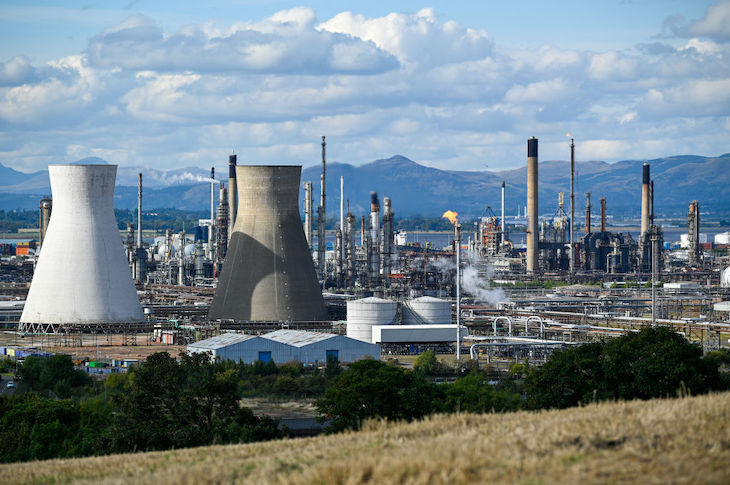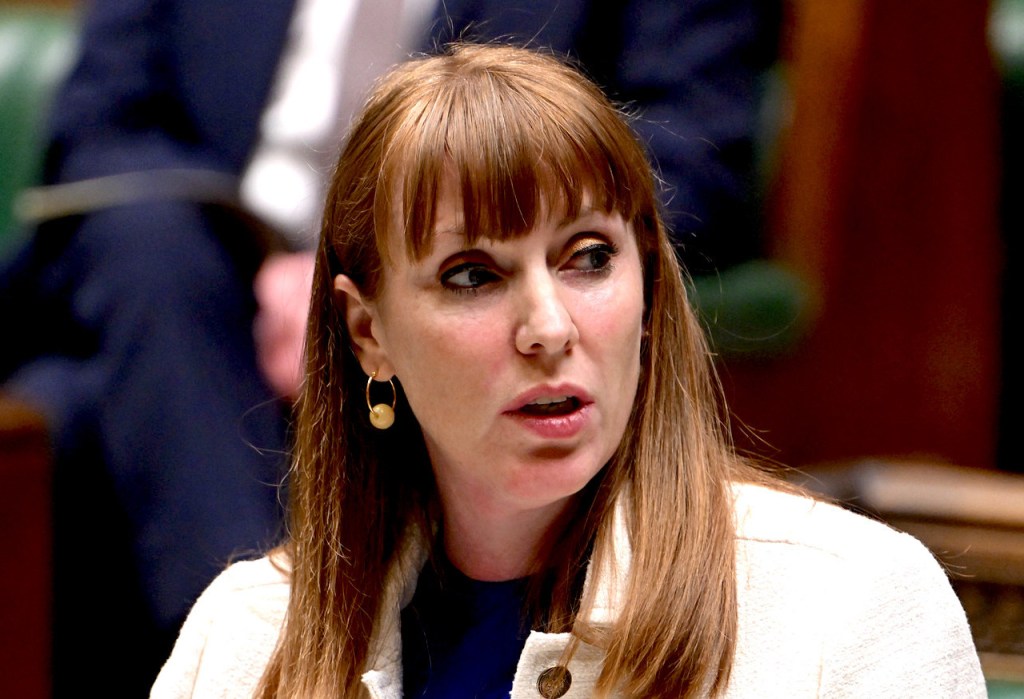Another grim milestone in Britain’s elective deindustrialisation was reached today: Scotland’s only remaining petrochemical plant, Grangemouth in Fife, ceased refining crude oil after more than half a century of processing output from the Forties field in the North Sea.
It was hardly a surprise. PetroIneos, the part-Chinese-owned company, announced last year that Grangemouth was to become a terminal for Liquefied Natural Gas (LNG) imported from abroad. But today’s news is significant because nothing better exposes the contradictory state of British energy policy.
Nothing could better expose the contradictory state of British energy policy
Despite Britain having substantial reserves of hydrocarbons in the North Sea – approximately 24 billion barrels – the UK government is choosing to switch to costly imports, which are likely to be more carbon-intensive than our own supplies, since much of it is transported thousands of miles by tanker. Moreover, much of the LNG we import annually from America is extracted using hydraulic fracturing (fracking): a method banned here.
The Labour government’s virtue-signalling approach not only undermines Britain’s energy security in an uncertain world, it also threatens future investment in renewable energy.
But don’t just take my word for it. Here’s Nicola MacLeod of the clean energy group D2Zero, writing in today’s Herald newspaper: “Just like steel, the North Sea is a national strategic asset,” she says, calling on the UK government to regard it in the same light as the recently part-nationalised Scunthorpe steel plant. MacLeod says the double whammy of Labour’s 78 per cent windfall tax on profits, plus the ban on future oil drilling, is placing this valuable resource in jeopardy and increasing the cost of energy to consumers.
Labour’s Net Zero Secretary, Ed Miliband, seems unable to grasp that many of the same energy companies involved in oil are also pioneers of the “just transition”. Norwegian company Equinor, for example – which is seeking to exploit the stalled Rosebank oil field west of Shetland – was also responsible for Hywind, the world’s first floating wind farm, which has been operating off Peterhead since 2017. Many of the engineering skills required for building and servicing oil platforms also apply to the construction and maintenance of wind turbines. Yet Miliband’s precipitate closure of the oil and gas industry risks sending these skills abroad, as unions like the GMB have been warning.
The Labour government insists that we must decarbonise for moral reasons: to save the planet for future generations. But there need be no conflict between energy security and Net Zero, provided it is based on energy realism.
Seventy-five per cent of the UK’s current overall energy use comes from fossil fuels. This is not going to change any time soon, because it is immensely difficult and costly to decarbonise industry, transport, and agriculture. Ninety per cent of British homes are still heated by gas. Many advocates of Net Zero accept that we’ll still need fossil fuels for many purposes, like plastics and pharmaceutical, after 2050. That’s surely why it’s NET zero, not zero.
The UK was self-sufficient in gas as recently as 2005, and there is still much of it left under our seas. Yet we now import much of our gas from Norway, which is taking a very different approach to the transition to renewables. The Norwegians, while professing to be in the vanguard of the renewable age, are pressing ahead with exploitation of fossil fuels in their portion of the North Sea. They are even planning to drill for oil in the Arctic.
UK electricity prices are up to four times as high as they are in the United States, and twice as high as in countries like Germany, which lacks the UK’s vast resources of fossil and renewable energy. These contradictions are becoming unsustainable. Voters are fed up with spending so much of their dwindling incomes on energy bills when they keep being told that green energy is much cheaper. The SNP is hopelessly compromised on the North Sea because of Nicola Sturgeon’s hostility towards it following COP 26.
It is no secret why Reform is making progress, even in supposedly progressive Scotland. Nigel Farage says Net Zero is the new Brexit. Even Scottish remainers seem to be listening to his energy populism.








Comments